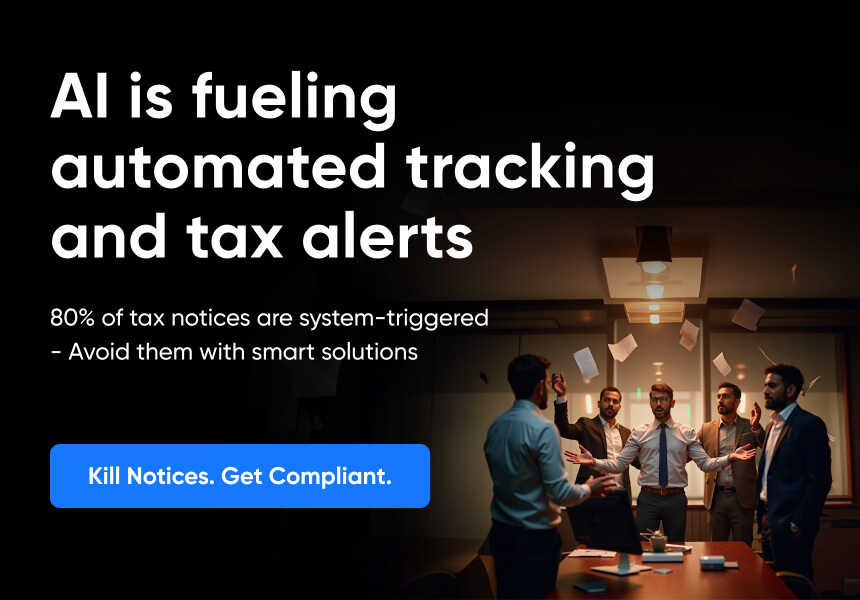POPULAR ARTICLES
- Bill of Exchange: Meaning, Format, Types, Features & Examples
- What is Channel Financing: Meaning, Benefits, How It Works & Examples
- Key Difference Between Factoring and Forfaiting
- Supplier Reconciliation: Process, Format, and Best Practices
- Host to Host (H2H) Payment Systems
- Factoring vs Reverse Factoring - Which Benefits Vendors
- Bill Discounting vs Bill Negotiation: Key Differences Explained
- Invoice Discounting Investment in India: Returns, Risks, Benefits & How to Start
- Different sources of working capital financing
- Vendor Onboarding in Indian Businesses: A Complete Guide
- What is Dynamic Discounting? Process, Examples, Pros & Cons Explained
- Invoice Discounting vs Factoring: Key Differences & Uses Explained
- What are Fixed and Floating Charges: Examples and FAQs
- How to account for invoice discounting
RELATED ARTICLES
- What is Accounts Payable - Meaning, Process, Examples, Formula
- Accounts Payable Journal Entry: Types & Examples
- SAP Tcodes for Accounts Payable: SAP Transaction Codes List for Accounts Payable
- Accrued Income Journal Entry: Meaning, Importance, and Examples
- What is Procure to Pay (P2P)? Process, Cycle, Benefits, Best Practices
- What is Bill Discounting: Meaning, Rebate, Types, Process & Examples
- 2-Way & 3-Way Matching in Accounts Payable Explained
- Letter of Credit (LC) Discounting: Process, Interest Rates & Example
- What is TReDS? Meaning, Full Form, Registration, Platforms & MSME Benefits
Top Risks Involved in Invoice Discounting Explained
Invoice discounting has become a popular method for small businesses to raise money quickly. It offers faster cash inflow and flexibility to the business. Although invoice discounting is a safe means of obtaining finances, it comes with certain risks. Hence, one must understand the hidden risks involved in invoice discounting beforehand.
Introduction to invoice discounting
Invoice discounting is the process where a discounting entity takes up due invoices and pays the amount to the person after withholding a percentage of the total invoice value. The discounting entity can either be the buyer company or a third-party financial institution.
In the first case, the invoices are discounted directly with the buyer company, which agrees to pay the invoices earlier for a mutually-agreed discount. In the latter case, the business sells its invoices to an invoice discounting company, usually a financial institution, at a discount. Here, the invoice discounting entity realises the full invoice value from the debtor at the end of the credit period.
Invoice discounting helps a business realise its invoices faster than waiting for the credit period to expire. This ensures the business can use cash that is locked in accounts receivables.
Risks associated with invoice discounting
- Impact on profit:
Invoice discounting is an additional finance cost to be borne by a business. This reduces the profit margin on the invoices that are discounted. Costs may also be hidden by the discounting entity in the form of administrative charges, credit rating charges, application charges, processing charges, etc. A business must analyse its cost appetite and assess all discounting options available before choosing the right discounting entity. The flexibility offered on discount rates and days discounted are also important. A programme that provides only a fixed rate & tenure discounting might cause a company to bear more costs than needed. However, a growing business may cover these costs and reap the benefits of discounts.
- Over-reliance on invoice discounting:
A business must not overly rely on invoice discounting as its main source of short term finance. Although it helps maintain adequate working capital, it cannot be used in every situation. Over-reliance on invoice discounting can be risky in cases where a debtor doesn’t have a good credit score. One may also have to bear high costs, as discussed above. Businesses must understand that it is not a source of long-term capital and cannot finance big projects. A business must be flexible about its sources of finance and use invoice discounting only when it is apt.
- Personal guarantee:
Invoice discounting is preferred by businesses since it is an unsecured source of finance. This means that the business provides a guarantee to the discounting entity. If the invoice is delayed or not realised, it can expose the business to legal consequences.
- Credit rating of debtors:
The creditworthiness of debtors ultimately decides whether the invoices qualify for discounts. If debtors have lower creditworthiness, the discounting entity will not discount the invoices. Discounting entities may also increase discounting rates to offset the credit risk. Insolvency of the debtors will, in turn, shift the burden of repayment back to the business. Hence, businesses can rely on invoice discounting only when there is certainty of payments from customers.
- Disputes with customers:
Disputes which may occur with the customer during a credit period could reduce the probability of receipt of payment. This can be negative for the business if the customer refuses to pay, and they will have to repay the discounting entity. Businesses must maintain customer relations well and set all terms before raising the invoice. Any harm to relationships can indirectly affect the discounting process.
- Withdrawal arrangements:
Once a business enters a discounting invoice contract, it is hard to exit from this arrangement. Exiting the contract of invoice discounting requires the business to pay the full cash that was borrowed, along with added charges. If the business is short on working capital, this may not be feasible and could face significant cash shortages.
All businesses must understand the invoice discounting mechanism and its associated risks before venturing into it. Invoice discounting can be a handy tool for such businesses as it helps keep steady cash flow. Invoice discounting will help businesses achieve their short term growth objectives and secure their working capital needs.


